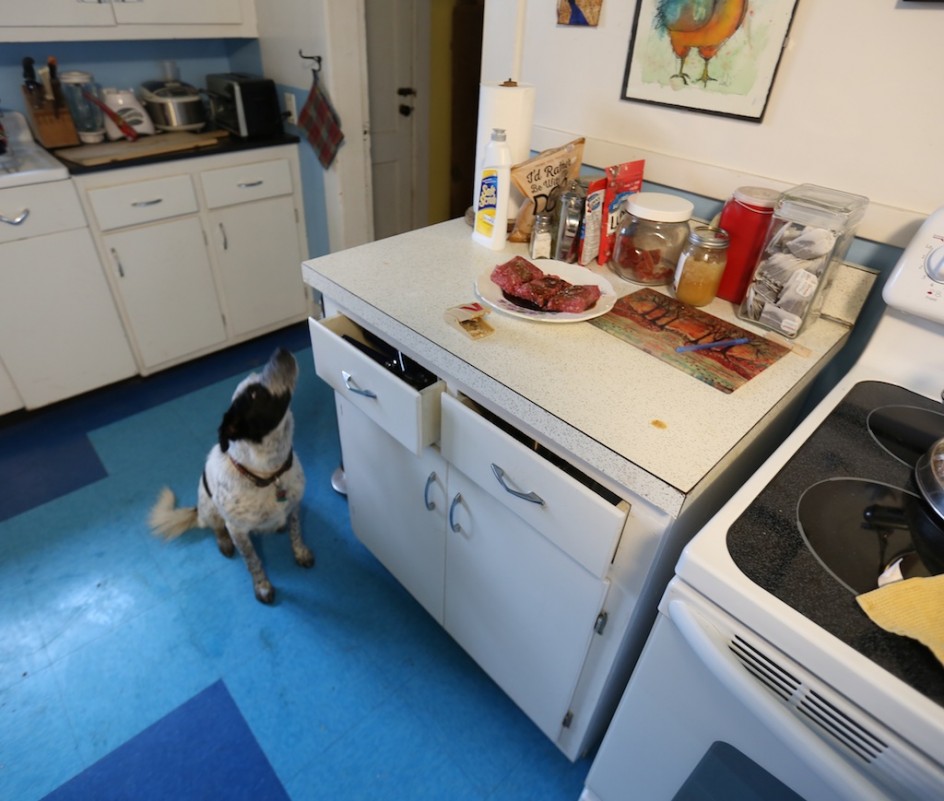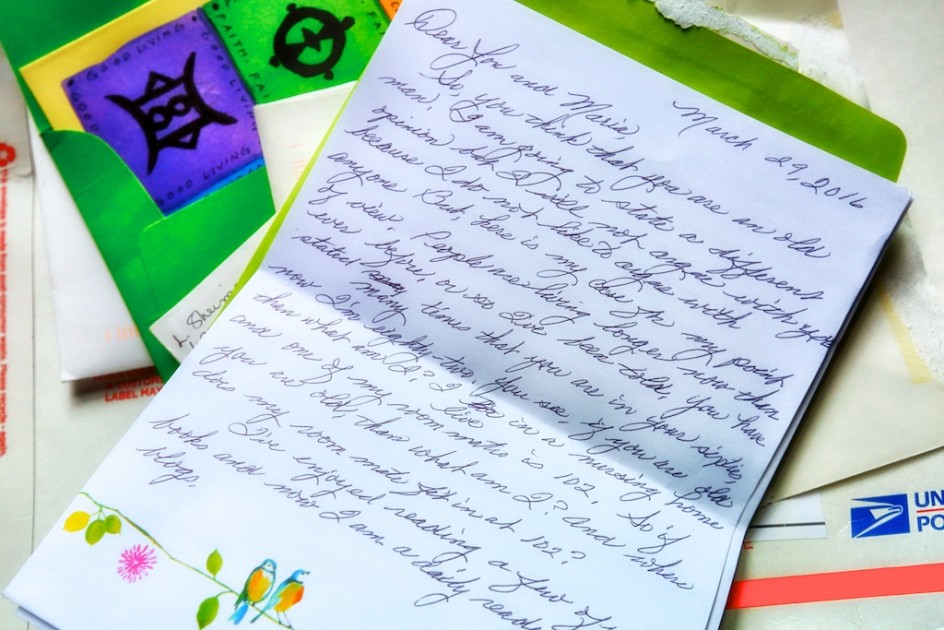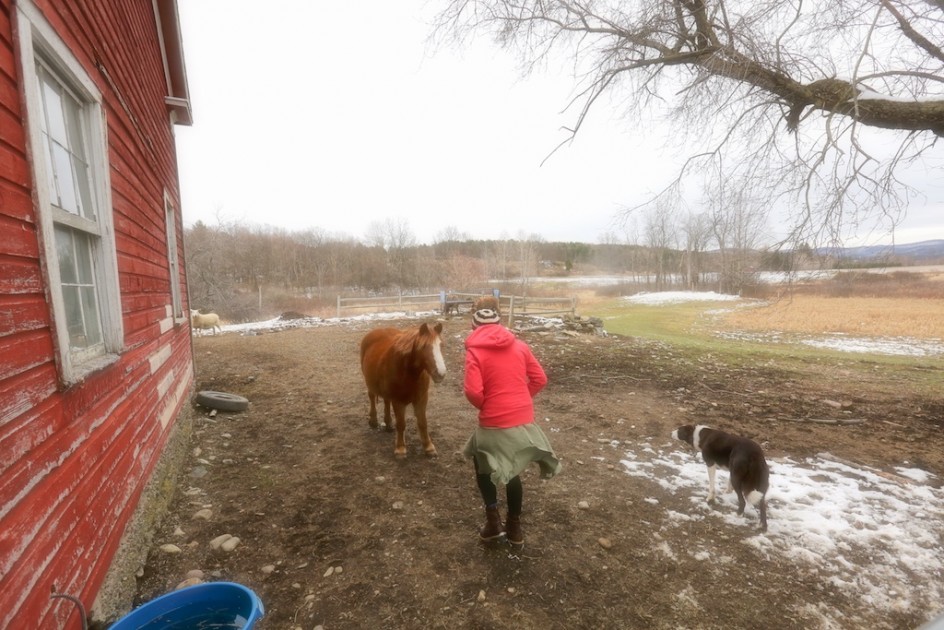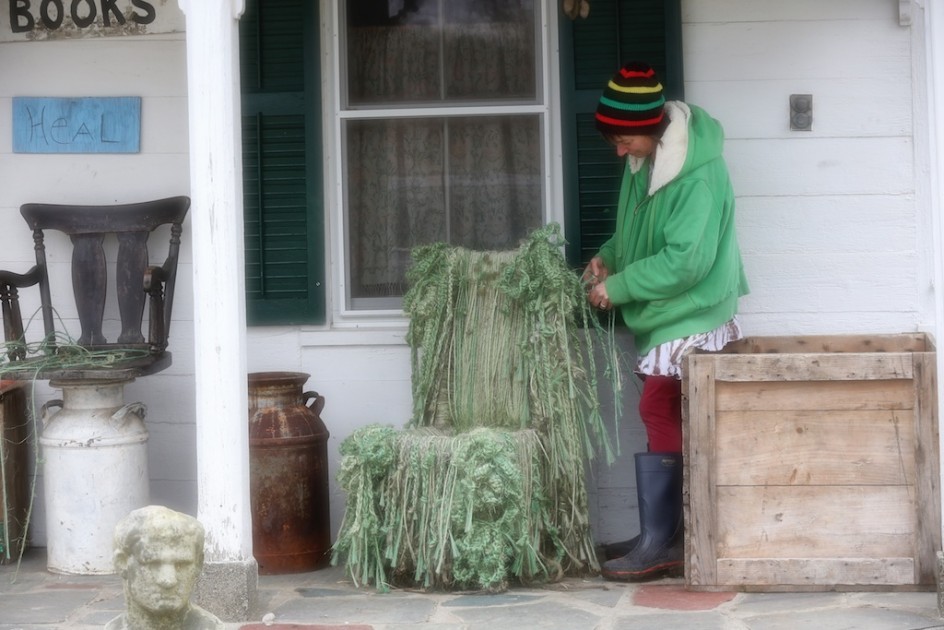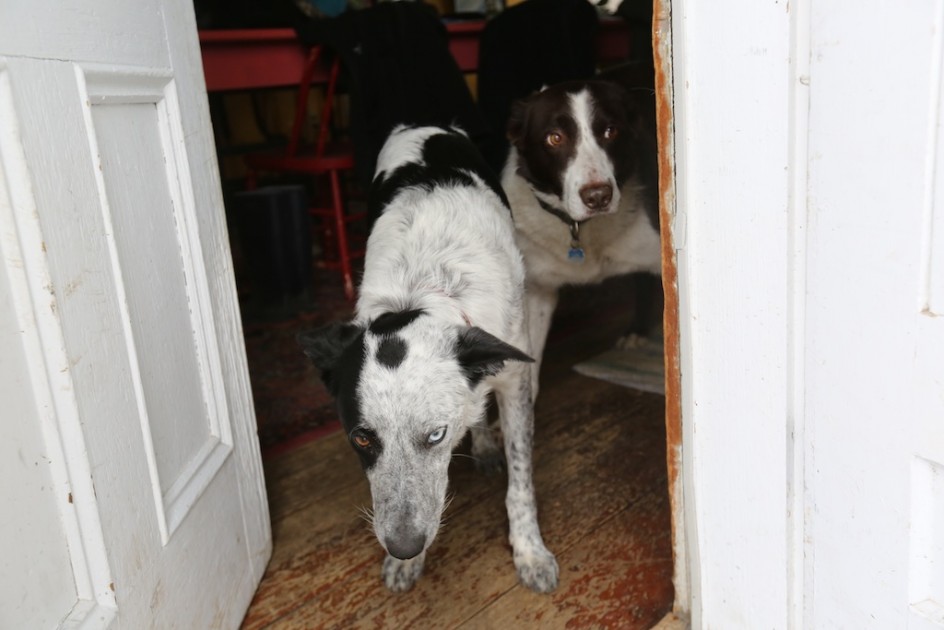
Not too long ago, a dog’s possessions were very different than they are now. If dogs were lucky, they were fed table scraps, and on holidays and Fridays, mashed potatoes with some gravy. Some slept in the back of trucks, others in garages, some outside wherever they could find a roof and a warm spot.
Vets were for rich people and cows, nobody spent a lot of money on a dog, not to buy them, treat their wounds, amuse or entertain them. Surely not to give them medications for depression and anxiety.
When I was a kid, well into the century, my father drove by a house with a sign that said “dogs for sale, free.” He brought one puppy home, he was spunky, he thought. His name was King. King was a German Shepherd puppy, more or less, the breeder did not want to spent money on spaying or neutering, which was largely unheard of at the time.
So he had puppies to give away two or three times a year. Dogs had sex in those days, all the time. King was a handful. He chased the mailman and the postman every single day, he often came home with pieces of their pants legs or uniforms in his mouth.
I should say that in the 12 years he lived with us, King never set food in the house. If he came home early, he got to sleep in the basement. If he came home after bedtime, he could find his own spot, outside my mother usually left the garage door open for him if she was in a good mood. She would also leave some leftovers and scraps in a plate.
In one awful blizzard, my mother forgot to open the garage door. We found King sleeping comfortably under our neighbor’s station wagon.
Buying dog food was unheard of, my grandmother said she met someone in her small shop – a rich lady – who asked if she sold dog food, and my grandmother was stunned, she said even Americans were not do dumb and wasteful as to buy food for a dog. We never did, not once.
King had no possessions. In the morning, when my parents went to work, they let him out. King was a presence. He tore open garbage cans, sexually molested female dogs – there were many Kings running around our neighborhood – and waited for the postman or mailman.
Since separation was assumed, separation anxiety was unheard of. If I had told my father King was depressed, he would have hauled me off to the doctor or given the dog away. Since people didn’t believe in those things, they never occurred.
The milkman came early, opened the door, rushed to the porch and dropped his milk there. He was a sprinter and usually made it back, although not always. King liked to aim for his butt. We sometimes heard his screams. No one ever heard of anyone getting sued over a dog bite, it was an occupational hazard, nobody walked dogs on leashes, cleaned up after them, or made too much of a fuss about getting nipped every now and then.
The mailman had gloves he wore, and carried a stave, he got skilled at fending King off with loud noises and lunges. King was protective, but no hero. If he had a good shot, he would take it. Otherwise, he would move on. He was just protecting our house.
Sometimes, King disappeared for days, we never knew where he went.
Nobody called the police or put up any signs. If he left and didn’t come back, my father said, we would get another dog. There were plenty of dogs around. My parents would never have given King a human name, that would have been a disturbing and inappropriate thing to do, an insult to people. They rarely, if ever, touched King or talked baby talk to him, and nobody ever called him a furbaby. At least not twice.
King never saw a human bed or slept in one, he never even saw the kitchen or the living room.
It seemed to me King loved his life. He roamed freely, dodged cars and trucks, had girlfriends every where, and a lot of human friends too. Neighbors often tossed scraps out for him, he had his regular rounds. Kids up and down the block threw balls for him and fed him their Tootsie Rolls, which he loved. He had great teeth all of his life.
Quite often, he limped or was lame – he got in dog fights, was hit by cars, run down by bicycles, probably had arthritis. He always got better.
Sometimes, King went off into the woods or the big cemetery down the street to hunt and prowl around. When he was tired, or if it was snowing, he would come to the back door, paw and scratch until someone let him in. My mother put a bowl of water and an old blanket in the basement. I guess that was one of his possessions, too.
When I think of King now, I think my parents would have been arrested many times over for animal abuse or neglect, but there were no secret animal rights informers prowling around them, and I can hardly imagine the police coming to ask us where King slept or what he ate or why he ran loose.
When King was old, he ran under a big truck and was killed. The garbagemen came and hauled him away, according to the neighbors, we never got to say goodbye. I always believed King committed suicide, he was getting blind and stiff and he knew when he was done. One thing for sure, he was going to have a natural death, nobody was taking him to a vet to be put down.
My mother cried when she heard the news, my father went out and got a Bassett Hound puppy named Sam two days later. He was a willful dog, he pushed me out of my own bed and growled if I climbed back in. I loved him.
I think of King when I think of my dogs now. T
hey eat holistic $45 -a- bag of dog food. They go to the vet several times a year, or whenever something doesn’t look right. They are neutered. We walk them in the woods and in fields, but they are never loose away from us. They will never have sex. They never run with other dogs. They sleep on orthopedic dog beds with ridges and ribs for comfort and back support. They have rawhide, toys, frisbees. They even have sheep. They ride around in cars all day, they are welcome everywhere.
When we go away, a loving pet sitter comes to sit with them, throw balls and keep them company. They are never outside in the snow and rain unless they are working. They sleep in heated rooms, on beds or in lined crates.
Times change, and I don’t really know if King had a better or worse life than Red and Fate.
I don’t like to romanticize the past, but the way dogs are treated this days does seem over the top to me. We have lost track of what they need, and care mostly about what we need them to be for us.
Certainly, King didn’t expect any more, and had no reason to be unhappy with his life. Animals do not covet what they don’t have, unlike people, who do.
I would say King led a great and happy life, far better than the vast majority of dogs today cooped up in back yards, basements, leashed on short walks, or imprisoned in no-kill shelters for years.
My mother loved King, I could tell, she worried about him. But she did not emotionalize him. He was a dog, that was never forgotten. Children were considered something very different than a dog, and were treated differently. I never heard anyone say King was like us kids.
I didn’t see him much, dogs then were at the periphery of our lives, not the center. Once in awhile, I would go out and visit him in the garage, and he was happy to have his stomach rubbed. But if I tried to pat him on the head, he would growl. He didn’t like to have his head touched.
King was never sick a day in his life, to my knowledge, other than his occasional limps, and I guess that says something about gravy and mashed potatoes. It would be considered criminal by many – it probably is a crime – to feed that to my dogs every day today.
King had no possessions to speak of, Fate and Red are rich in comparison.
What King did have was the life of a dog.
I like to think my dogs are content also. They also don’t know anything different than they have, they could not have any grasp of the life King led.
I know I do much more for them than they need me to, I do it for me, not them. My parents didn’t need to do that, I think. They had their own lives, King had his. More boundaries, I think.
King had his own life, just as I did, and he had his own problems to solve. Just like I did.

